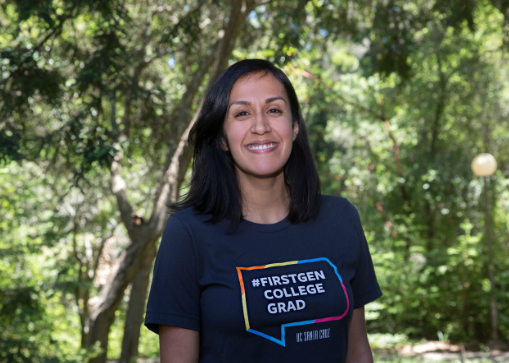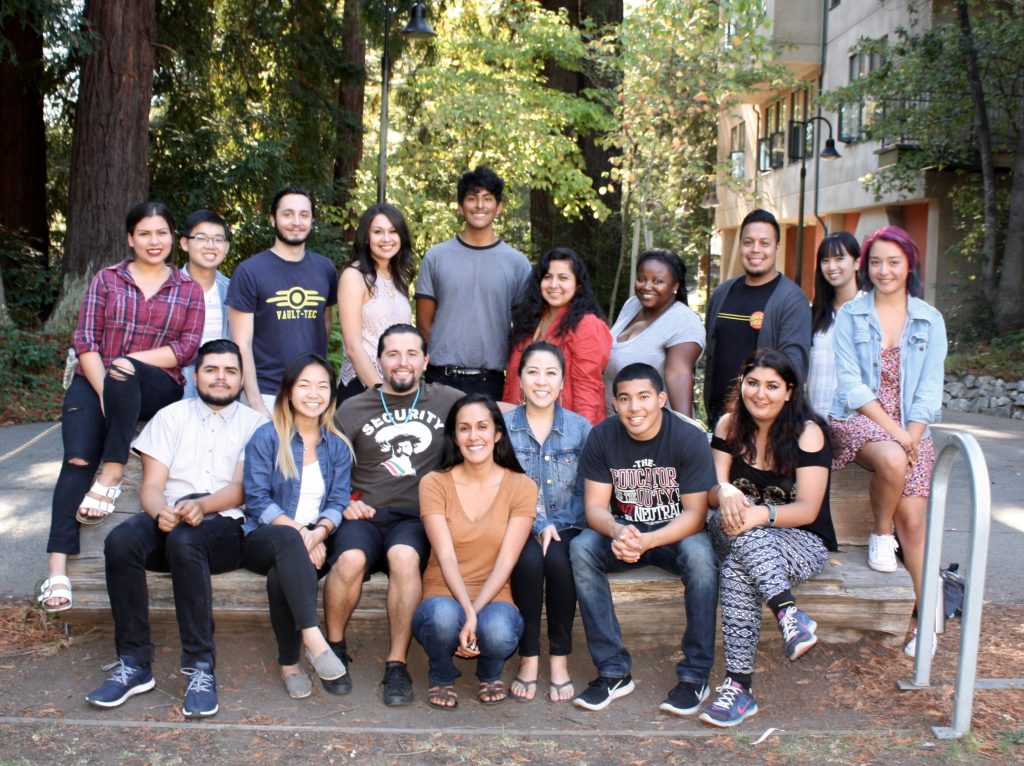First-Gen Faculty: Rebecca Covarrubias (Associate Professor (Psychology Department)

“¿Estás durmiendo bien?” “Are you eating enough?” “Your new shoes look funny.” These are bits of conversations that can be heard when Rebecca Covarrubias, an Associate Professor of Psychology, visits home during the break. “My family shows love in many ways — making sure I’m doing okay and also teasing me. They are good at it, too.”
One of four children, Rebecca grew up in a predominately low-income, Mexican neighborhood in Phoenix, Arizona. Born to two hard-working parents — her father, Jose Luis, an elementary school bus driver and janitor and her mother, Rosario, the backbone of the family — she learned the values of collaboration, hard work, and humility.
Growing up, she observed her father work long days in the Arizona heat to support the family, and her mother always on her feet to keep the family together. “It’s not just that they do everything for the family with limited means, but that they are also compassionate, tough, and funny. I admire who they are as people.”
Until Rebecca tested into an International Baccalaureate program outside of her high school district, she did not realize the stark contrast in resources available to her community and those available to other students in the honors program. Noticing these inequities propelled her to work harder and ultimately earn a full-ride to the University of Arizona (U of A) where she could learn how to make a change in her community.
“It was a hard transition leaving my family,” she said, as the first in her entire family to go to college.
For Rebecca, the strength of family bonds is typical of first-generation students, who are in many instances depended upon to contribute to the family, physically, emotionally, and financially. Since high school, Rebecca worked part-time jobs to give back to her family.
While enrolled at U of A, Rebecca was selected into the Ronald E. McNair Achievement Program that focused on introducing diversity into the research field. “I met other low-income, first-generation scholars of color like me and connected with mentors who believed I could do anything. For the first time, I could envision myself as a researcher,” she said.
The Ph.D. program in Social Psychology at U of A did not come without challenges, however. Rebecca struggled to feel like she fit in with the graduate school culture and felt further disconnected from her family. “When moments of doubt hit, I thought about how hard my parents work or those who invested in me, or I found a way to connect with them,” she shared. “That helped keep me going.”
Rebecca found she had a knack for working with students, many just like her. “Being in the classroom or meeting with students was the only thing that consistently felt rewarding. Students gave meaning to the work.”
Having done postgraduate work in Delaware and abroad in Italy, Rebecca was excited to accept a position at UC Santa Cruz. “Even though my parents may not fully understand what it means to be faculty, they were excited for me,” she says, pointing out an example of how being first-generation can follow you throughout your career. “We were all especially excited that I was finally closer to home.”
 Rebecca directs the Culture and Achievement Collaborative on campus, where her undergraduate and graduate research team develops culturally-relevant approaches and strategies that can be used to better serve diverse students.
Rebecca directs the Culture and Achievement Collaborative on campus, where her undergraduate and graduate research team develops culturally-relevant approaches and strategies that can be used to better serve diverse students.
She wants students to know that “My door is always open to you.”
Watch Rebecca's first-gen faculty profile video with tips and suggestions for navigating the first-gen experience.
